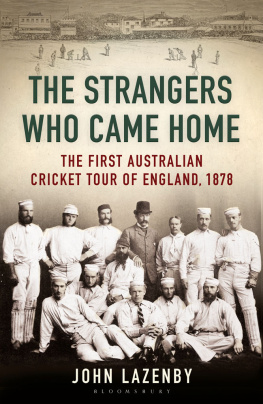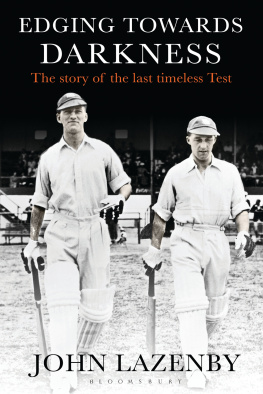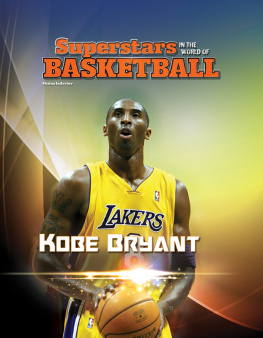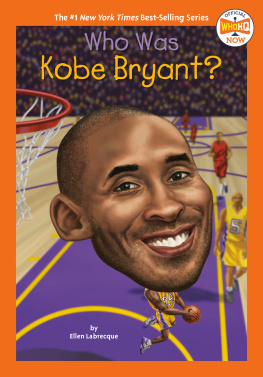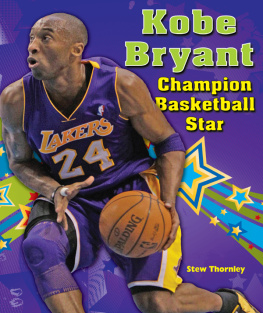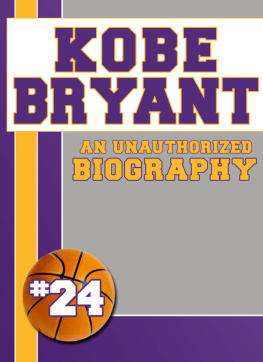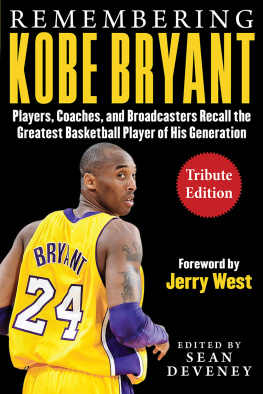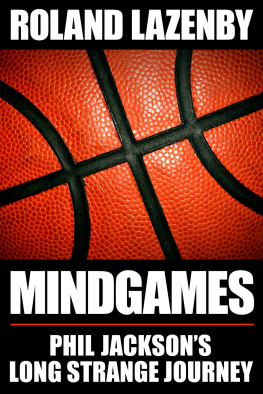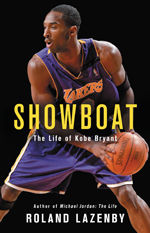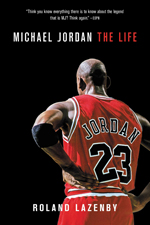Copyright 2016 by Full Court Press, Inc.
Cover design by Neil Alexander Heacox
Cover photograph by Jake Lemie / basketballphoto.com
Cover copyright 2016 by Hachette Book Group, Inc.
Author photograph by Scott Cunningham
Hachette Book Group supports the right to free expression and the value of copyright. The purpose of copyright is to encourage writers and artists to produce the creative works that enrich our culture.
The scanning, uploading, and distribution of this book without permission is a theft of the authors intellectual property. If you would like permission to use material from the book (other than for review purposes), please contact permissions@hbgusa.com. Thank you for your support of the authors rights.
Little, Brown and Company
Hachette Book Group
1290 Avenue of the Americas, New York, NY 10104
twitter.com/littlebrown
littlebrown.com
facebook.com/littlebrownandcompany
First Edition: October 2016
Little, Brown and Company is a division of Hachette Book Group, Inc. The Little, Brown name and logo are trademarks of Hachette Book Group, Inc.
The publisher is not responsible for websites (or their content) that are not owned by the publisher.
The Hachette Speakers Bureau provides a wide range of authors for speaking events. To find out more, go to hachettespeakersbureau.com or call ( ) - 6591 .
All product names, logos, and brands are the property of their respective owners, and use of them does not imply any endorsement of or affiliation with this book.
ISBN 978-0-316-38727-9
E3-20160912-JV-PC
Dedicated to black and white and all the wonderful shades in between, to Ella Mae Austin and to Roger Davis, and to Doc Foster and Estella Hampton, to all of those who bless us by teaching giant lessons in a million precious ways, and to my lovely companion of many years, Karen, who is far beyond measure, to my children, Jenna, Henry, and Morgan, and grandsons, Liam and Aiden.
In loving memory of Jeanie Lazenby Masten.
I N THE BEGINNING, he came across as a fun-loving kid. He wasnt, of course. Kobe Bean Bryant had to work hard to show that nothing bothered him.
Especially that troubled rookie season.
I was there the night he scored his first NBA field goal, a three-pointer, at Charlotte Coliseum, in December of 1996 .
He bounced into the locker room after the game and hit me with a soul shake, a little skin, the hooked fingertips, and a tug. He had no earthly idea who I was. Just some guy with a notepad and a recorder. But he was eager to greet the world.
Later that season, I sat alone with him in an empty locker room in Cleveland, as he waited to compete in the slam dunk contest at the NBAs fiftieth anniversary All-Star Weekend, passing the empty time before he went on stage.
We discussed his status as the poster child for a generation of new talent coming into the NBA, much of it very young, the youngest group of players that would ever come into the league. He talked of the difficulties, the expectations, the hazards, the many temptations in big, bad Los Angeles for a player who was just eighteen years old.
He talked about how deeply Magic Johnsons HIV announcement in 1991 had affected him at age thirteen, about how he would avoid the temptations that Johnson would later admit led him to sleep with three hundred to five hundred people every year.
With me, its simple, Bryant told me, because theres a lot I want to accomplish in my life.
Indeed, just minutes later he would leave our relaxed, thoughtful discourse in the locker room to put on an energetic performance and win the slam dunk contest, which turned up the flame on his already white hot ambition.
The next year he would be voted a starter in the All-Star Game, despite the fact that he didnt even start for the Lakers. That would be followed by the disastrous 1999 season in which Lakers owner Jerry Buss blew up an extremely talented team that seemed to be headed nowhere.
In the midst of the chaos of his third season, Bryant was a very lost, lonely, frustrated twenty-year-old.
I just want to be the man, he told me, reaffirming his goal of making himself into the NBAs top player. I dont know how Im going to get there. I just have to find a way.
And he would, despite how unlikely such a goal seemed at the time. As he closed in on the end of his career in 2016 , Bryant could look back at the numbers he racked up in twenty seasons and declare that he had earned a seat at the table with the games greatest. In 2015 , he had passed his idol, Michael Jordan, to sit third on the leagues list of all-time scorers, behind only Kareem Abdul-Jabbar and Karl Malone. More important, Bryant had helped lead the Lakers to five NBA titles, made eighteen appearances on the All-Star team, and had won two Olympic gold medals.
Though that night as a rookie in Cleveland he said that he didnt know how he would get to the top, he had settled on an answer he had known all along. He was going to grind his way thereimplacably, relentlessly grind away at the challenges of the game, night after night, game after game, until he found a dominance born of his ability to outwork everyone else.
The events of his careeran unprecedented twenty years with a single NBA teammake the case that Bryant, aloof and uncompromising, brilliant and self-confident, has proved himself to be a grand enigma of American professional basketball. He is easily the most driven competitor in the history of the game, one who over the seasons quietly gained a reputation among the insiders of the sport as an absolute master of study and intense preparation, with a singular focus on detail that astonished those around him. In turn, his life also proved to be a machine that churned out immense conflict, just about all of it the by-product of his push to dominate the sport.
Night after game night, day after day, for two decades, through injury and turmoil, through the rupture of one key relationship after another, there would be no price he would not pay to have his greatness.
In the process, he became what would be described again and again as the most polarizing player in the NBA, alternately loathed and loved by huge portions of the pro basketball fan base.
From the earliest age, his father, former NBA player Joe Jellybean Bryant, had sought to establish in his son a supreme confidence. Above all, it remained his trademark.
That impenetrable, unshakable self-belief was the one trait where Bryant clearly outranked his contemporaries, said psychologist George Mumford, who had worked extensively with both Jordan and Bryant. It puts him in his own category.


